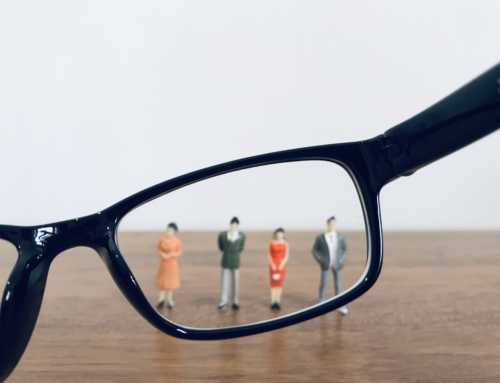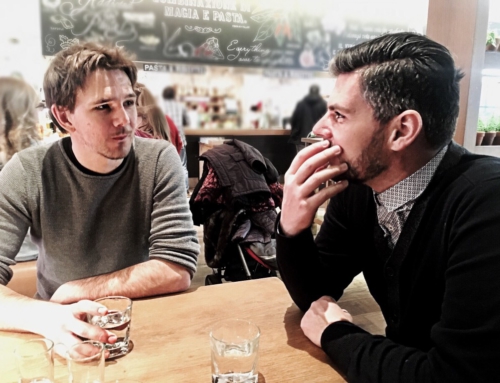
Agility is part of being fully present. Agility means having the mental and emotional resources to switch gears when life takes a turn for the worse. The coronavirus pandemic is absolutely a turn for the worse.
It’s long be said that crisis brings out both the worst and the best in people. I fully believe that this is a difference in the presence or absence we bring to our crises. Absorbed in our own fears and suffering, we dehumanize ourselves and others. But when we fully engage our humanity, we become forces for good in the midst of terribly uncertainty.
Today, as many of you are isolating and wondering about your future, we want you to know that we stand with you. Some of you may be adjusting to remote jobs, or fearing that there will be no job for you at all on the other side of this. Or, you may have already gotten bad news on that front, and now the kids are home from school to see how badly it’s affecting you. You may, right now, even have loved ones suffering from the effects of COVID-19. It will be crucial to stay in touch with your humanity over the coming weeks; we’ve given you a few ways to do so here:
Timefulness
- Anticipate the future. This crisis is likely to last for months, not weeks. Be aware of just how long “business as usual” may be suspended; be patient with your families and your teams as you confront this reality.
- Accept the adjustments made to your schedule, and rebuild “business as usual” around your family’s needs. Make deliberate time for your family and their care; as long as the “9 to 5” day is suspended like this, find ways to make the most of it by making time for other things.
- Budget your media and technology bandwidth. It will be tempting to remain plugged into work and the news for any kind of update, but we are easily paralyzed by too much information. You have an opportunity to unplug, to engage the noise on your own terms. Ration yourself, and be present to those around you.
Placefulness
- Government-mandated quarantines will restrict movement and travel. Take these encouragements seriously; it is reckless to ignore them. Be wary of going outside where more than 10 people are gathered. Understand how this virus spreads, and do not encourage it further by ignoring official suggestions.
- Don’t hoard. We have limited space and resources, and depriving others out of panic or selfishness dehumanizes you and them. When you go out for necessities, be helpful to those around you who are staffing those places. Be part of the peace, not the problems.
- Given the likelihood of self-quarantine, take time to reconnect with your own space. Appreciate the time you have in your home, and remember what a blessing it is to you. Clean it up, steward it, take ownership of your space again.
Bodyfulness
- Government mandates on “social distancing” will require that you be mindful of your body in relation to other bodies. Maintain a distance of 6-8 ft. from others. Isolate yourself if you don’t feel well.
- Pay close attention to your hygiene habits. Sneeze or cough into your elbow to reduce the potential spread of contagion. Wash your hands thoroughly and often, front and back and between fingers, for at least 20 seconds.
- Mind your own symptoms. Do not self-diagnose, but be honest with yourself if you think you may be infected. Quarantine yourself, and seek help as you are able. Let doctors know you are on the way, so they can prepare for you.
Otherfulness
- Crisis management is always about victims first, at home and on the job. Your first priority should always be the care of others.
- Be mindful that our brothers and sisters around the world are suffering. Though it may be tempting to place blame in our pursuit for a reason or rationality behind the outbreak, people across the world — especially in China, Italy, and the Middle East — are suffering as well.
- Decide that you will appreciate the renewed time you have with your family during school closures and quarantine. Commit to enjoying one another, rather than living under stress and fear.
Storyfulness
- Remain educated and attentive. Vet information, and do not repeat misinformation. Understand that speculation will do nothing to increase or diminish the conventional wisdom of disease control and prevention. Speculation without informed decision-making leads to panic. Utilize public, research-based resources for guiding your next steps. These include the World Health Organization, Center for Disease Control, OSHA, and others.
- Be wary of “clever” or alarmist stories that try to make sense of things by finding someone to blame. There is presently no evidence that COVID-19 is an intentionally-deployed bio-weapon — by China, North Korea, or otherwise. Any story that makes a villain of someone else, or makes us out to be helpless victims, is not worth listening to. Be wise as a fox and as innocent as a dove as you educate yourself on what is happening (Mat 10:16).
- Remember that we are all part of something bigger. Whether you are looking for the sovereign providence of God in this, or simply wondering how you will explain it all to your kids, remember this crisis is only one part of our history. Embrace your humanness, and be one of the heroes in the stories you hope to tell after this.
These were some of the most important and practical lessons I learned while writing How to be Present in an Absent World. I hope they inspire you to embrace fullness and presence despite anxiety, and to become fully human in this difficult time.
Related Articles
Take a look as some more related articles below



